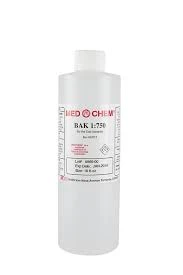polyepoxysuccinic acid
Polyepoxysuccinic acid (PESA) is a versatile compound primarily recognized for its applications in various industrial and environmental fields. As a derivative of succinic acid, it possesses unique properties that make it highly valuable in several domains, including water treatment, agriculture, and materials science.
PESA is characterized by its polyepoxy structure, which bestows it with excellent chelating abilities. This allows PESA to effectively bind with metal ions, rendering it useful in the water treatment industry. Water contaminated with heavy metals poses significant environmental and health risks. By employing PESA in water purification processes, industries can significantly reduce the concentration of harmful metals, thereby improving water quality. Its ability to chelate metals like lead, cadmium, and mercury makes it a crucial agent in remediation efforts, ensuring the safe disposal of wastewater.
In addition to its role in water treatment, PESA finds applications in agriculture. As a soil conditioner and fertilizer enhancer, PESA can help improve nutrient uptake in plants. When utilized in agricultural practices, it facilitates the availability of essential minerals, promoting healthier crop growth. Furthermore, its biodegradable nature ensures minimal environmental impact, aligning with the growing demand for sustainable agricultural practices. By integrating PESA into cultivation strategies, farmers can enhance yield while contributing to ecological conservation.
polyepoxysuccinic acid

PESA is also making strides in materials science. Its unique chemical properties allow it to be used as a component in the formulation of coatings and adhesives. The incorporation of PESA into these materials enhances their durability and performance. For instance, coatings made with PESA exhibit improved resistance to environmental factors such as corrosion and UV radiation, thereby extending the lifespan of treated surfaces. This advantage is particularly relevant in industries where material longevity is critical, such as in automotive and construction.
Moreover, ongoing research into PESA is uncovering new potential applications. Scientists are exploring its role in drug delivery systems, where its biocompatibility and ability to encapsulate therapeutic agents could lead to innovative treatments for various health conditions. Additionally, its use in developing biodegradable plastics presents an exciting avenue for reducing plastic pollution.
In summary, polyepoxysuccinic acid stands out as a multifunctional compound with significant industrial and environmental applications
. Its ability to chelate metals, enhance agricultural practices, and contribute to materials innovation marks it as a critical player in advancing sustainable technologies. As research continues to unfold, PESA could play an even more prominent role in addressing some of the pressing challenges faced by modern society.-
Pbtc Scale InhibitorPBTC: A Scale Protector for Industrial Water TreatmentNewsAug.05,2025
-
Organic Phosphonate: An Efficient Defender in the Field of Scale InhibitionNewsAug.05,2025
-
Hydrolyzed Polymaleic Anhydride: Green Pioneer in Scale Inhibition FieldNewsAug.05,2025
-
PAPEMP Polyamino Polyether Methylene Phosphonic Acid For SaleNewsAug.05,2025
-
Flocculant Water Treatment: A Pioneer in Purification in the Field of Water TreatmentNewsAug.05,2025
-
Benzyl Isothiazolinone: An Efficient and Broad-Spectrum Antibacterial Protective GuardNewsAug.05,2025





